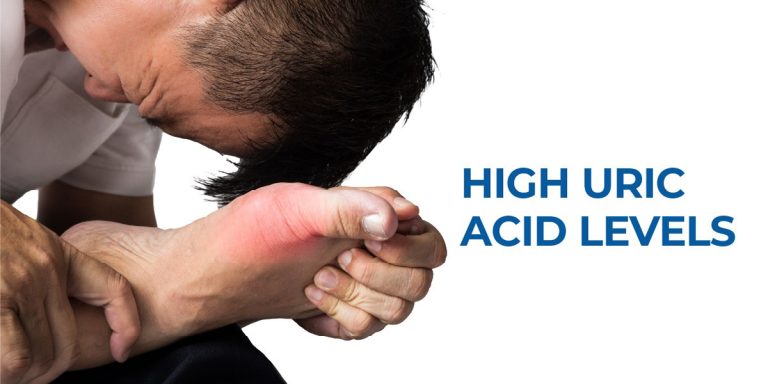Why do we fall sick?
We all fall sick now and then. Some of us fall sick more frequently. There are various reasons for falling sick. Some seasonal flu/viral fevers etc. naturally occur to many of us. These are among the self-limiting diseases. But with some of us, the situation is different, the condition lasts more than normal. There are other symptoms and suffering manifests in many other ways as well.
It might have happened quite a time that you ate together with family or friends but only you got an infection and vomiting, diarrhea or upset stomach (commonly called food-poisoning) caught you. There are many people who get more impacted by pollution and other respiratory ailments whereas some others who were exposed to the same situation were able to better handle it.
Generally, the following are the reasons why we fall sick or rather why some of us fall sick more frequently:
Low immunity
Our immune system is not working to its full potential. Our body is a great machine and in a sense is self-sufficient to prevent a wide variety of ailments. The body has an intelligence system that gets activated when it is attacked by viruses, bacteria, etc. Immunity is the ability of our body to prevent the invasion of germs and not allow them to cause harm to the body. Immunity of our body can identify and detect harmful germs which enter our body and deal with them and prevents them from causing any harm to our body.
When we have low immunity the bad germs overpower our body’s defense system and manifest in the form of different types of illness.
In the case of some people, their immune system has some disorder. It may be genetic. Their Immunity is not able to fight toxins, bacteria, viruses, etc. The immune system of such persons is not capable enough to fight the antigens which invade their bodies. They don’t make antibodies to fight disease-causing bacteria and viruses.
Further, a lack of enough white blood cells, also known as leukocytes makes some people sick more frequently. White blood cells are our body’s first line of defense in case we catch any infection. These cells are responsible for protecting our body from any infection. These cells are present in the bloodstream and circulate through it, and travel through blood vessel walls and tissues to locate the site of an infection. Whenever there is an invasion of foreign organisms WBC attacks them. They identify their enemies, locate them in the body and fight with the help of antibodies and kill the foreign organism.
Lack of necessary nutrients
Many nutrients cannot be made by our body and therefore these need to be supplemented by food or external sources. The lack of these nutrients interferes with the healthy functioning of the immune system. The immune system finds itself to be inadequate to handle the attack of harm causing bacteria etc. Vitamin C, D, and Zinc are amongst the major nutrients which play a considerable role in having a healthy immune system.
Not observing hand hygiene.
Most of the infection-causing germs travel through our hands. Hand hygiene is absolutely essential to prevent the spreading of such communicable diseases. Unclean hands. Washing hands with soap frequently can lessen the risk of infections caused by germs etc. We normally touch our faces over 200 times a day. Whenever our hands are carrying infection-causing pathogens, the probability of infection to us is increased.
Anxiety, stress, worrying, and lack of sleep.
Everyone has some stress or worries in life. This fast-paced life has not spared anyone. We all come across a number of situations in our day-to-day life where we are stressed. Cortisol, the stress hormone, deals with such a situation and temporarily alters the body’s functioning to deal with the stressful situation. It activates a fight or flight response. After dealing with a stressful situation the body resumes its normal functions. However, when the stress is chronic and the mind has to deal with the stressful situation for a longer time, the stress switch remains on and the body continues in fight or flight mode. Cortisol remains up and our mechanism to fight viruses and germs is compromised. This results in lower strength in the immune system thus paving the way for an attack by viruses and germs.
Further, the role of sleep in the strength of our defense system cannot be undermined. Our body’s repair is carried out when we sleep; the body’s energy is directed to repair and detoxification. Sleep is not only essential for the body but also extremely important for brain functioning as well. The brain also undergoes a similar process of detoxification and resurrection during sleep. Quality of sleep is equally important. Deep sleep plays the role of restoring the body for the next day’s work. If we don’t get enough good sleep we tend to fall sick more as the body is in continuous rest-deprived mode. The strength of our immune system is impacted by the quantity and quality of sleep.
Exercise
Apart from other verticals of good health being discussed in this article, the role of exercise in preventing and treatment of diseases is no less. People who regularly exercise or do any physical activity like walking, jogging, running, swimming, or exercising in Gyms have better cardiovascular health and endurance. Exercise is found to have a considerable effect in helping in the prevention and treatment of cardiovascular diseases, cancers, arthritis, diabetes, obesity, depression, etc. Everyone should do some physical activity, after consultation with their doctor. The results of regular exercise are marvelous in many cases.
Low water intake
It will not be wrong to say that a strong immune system is dependent upon a well-hydrated body. Our immunity needs the nutrients carried in the bloodstream. Lack of water interferes with the transportation of nutrients to different organs of our body. It detoxifies us. Water forms around 65% of our body. Water is needed for the following bodily functions:
- Proper digestion;
- Helps in absorbing nutrients when they enter the blood
- Transporting nutrients to cells in the body;
- Elimination from the body of the waste material which the body no longer needs;
- Water keeps the mucous membrane in good condition;
- The mucous membrane acts as a barrier inside of our body for protection; traps the pathogens and other particulate matters and stops them from entering into tissues.
- Water plays an important role with regard to lymphatic fluid as well lymphatic fluid travels through the body and carries lymphocytes, (white blood cells). This fluid is responsible for removing toxins and waste products from the body. Dehydration results in interfering with the smooth draining of the waste material from the body.
Role of Diet
It has been widely accepted now that we become what we eat. A large part of our immunity is situated in our gut. The health of our gut is linked to our immunity. The nutrition in our foods impacts the composition of gut flora or bacteria in the gut. The gut flora affects the cells that are in charge of our immunity.
The diversity of our diet is linked to the diversity of our gut microbiome. A strong and diverse gut microbiome is helpful in dealing with inflammation and other disorders. A diet that has adequate fiber is the food for the gut microbiome and is helpful in the prevention of diseases. Equal is the role of complex carbohydrates found in vegetables, whole grain, bran, peas, beans, bran, etc. Prebiotics are also important for having a healthy gut. Resistant starch also comes to aid gut health. The fiber which our body cannot digest is the food for bacteria in our gut and it thrives on it. It has also been recognized that being overweight also affects our immunity.













